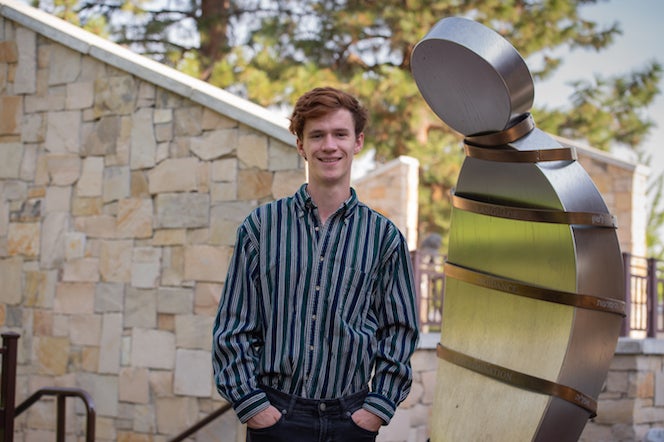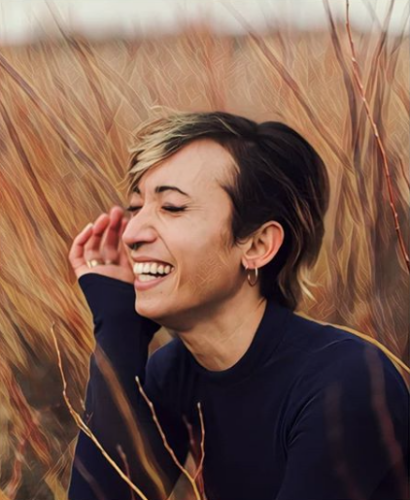
Blake Hunter grew up halfway between Twin Falls and Burley, near the town of Eden, and graduated from Valley High School in 2016 – one in a class of just 37 students.
Growing up gay in a conservative community, Hunter knew other gay people.
“But I didn’t know anyone who lived a queer or trans experience who was celebrated for that,” Hunter said. “There’s a difference between being accepted and being celebrated.”
Hunter is beginning their senior year, majoring in media arts with a journalism emphasis, minoring in history and pursuing a certificate in human rights. This summer, thanks to a grant from the Boise State History Extension Service, Hunter is working on a project that will elevate the stories of Idaho’s LGBTQIA community.
Hunter is helping to create an e-book for the Wassmuth Center, the educational arm of the Anne Frank Human Rights Memorial in Boise. The ebook will feature stories from several local writers about living in Idaho and “being queer, or trans, or somewhere in that spectrum,” said Hunter.
Their tasks include doing outreach to potential writers and writing the book’s introduction, a glossary of terms and a list of resources.
The e-book is the brainchild of Jyoni Shuler, grandchild of Marilyn Shuler, the late human rights advocate who co-founded the Anne Frank Memorial and received an honorary doctorate from Boise State in 2014. Jyoni Shuler will enter Boise State’s social work program this fall. They sit on the Wassmuth Center’s board.

Earlier this year, Shuler, who identifies as a transfeminine non-binary person, was dismayed when the Idaho Legislature passed bills banning transgender girls and women from competing in women’s sports and banning gender changes on birth certificates (federal judges recently ruled against the laws). They wanted the Wassmuth Center to take a stand and the e-book is the result.
Hunter has been a great asset to the project, said Shuler.
“It’s wonderful to have a Boise State student who works at the Gender Equity Center and is radically exploring identity. I see Blake as being in the vanguard of the young generation.”
In their outreach to writers, Hunter and Shuler are being intentionally inclusive.
“We have been reaching out to people who hold a broad array of intersecting identities,” said Hunter, “people of color, people with disabilities.”
Hunter said that even as a gay person they’ve recognized their privilege as a white cisgender man. The new ebook, they added, “will capture a broader scope” of the Idaho experience.
“When we enable justice for the most marginalized, it widens justice for everyone,” said Hunter. “I’m glad there are people in Idaho doing this work, and I’m glad to be part of it.”
Shuler aims to have a draft of the e-book done by the end of August. When it’s complete, it will be available to the public on the Wassmuth Center website and will be among the materials the center uses for educational outreach.
More about the History Extension Service
The History Extension Service is a new program that began in the spring of 2020, a partnership of the Department of History and the Working History Center.
The goal is for students to share their historical expertise beyond the university, said Bob Reinhardt, an assistant professor in the history department and director of the program. The program is ongoing. Students can propose projects. Organizations also can ask for assistance with existing projects. Reinhardt sees the program eventually expanding into communities throughout the state.
“I’m imagining many organizations would love to have our students share their expertise, their training and their fresh vision,” said Reinhardt.
Four students, including Hunter, received $1,000 grants this summer. A fifth project is taking place in fall with the Boise City Canal Company, one of the oldest irrigation companies in the American West.
“I have a personal and professional commitment to helping students who love history find a way to put that love to work. All of these projects do that as well as exploring marginalized and unknown history, and telling stories that might otherwise be lost,” said Reinhardt.
– Story by Anna Webb